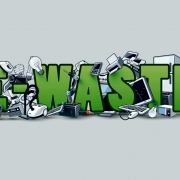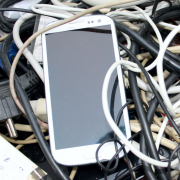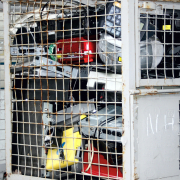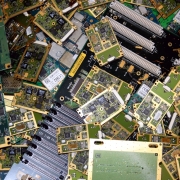Why are Standards Needed for Managing Global E-Waste?
On top of the growing volumes of e-waste generated by their own populations, several countries are facing an additional problem: illegal e-waste shipped from other countries.
Various studies conducted over the years identify China, India, Pakistan, several African countries such as Ghana and East-European countries like Ukraine, as the victims of the dumping of millions of metric tonnes illegal e-waste from developed nations. The final recipients of this e-waste often lack adequate legislation or infrastructure to properly manage the e-waste, resulting in health and environmental hazards. Proper disposal of e-waste everywhere, poses a huge challenge for our society.
But there is still hope. Sustainable Development Goal 12 for ensuring responsible consumption and production patterns, set by the UN aims to tackle this very issue. There’s demand for tighter regulation and better infrastructure, which is where standards play a vital role. IEC International Standards and Conformity Assessment Systems can contribute to correcting the situation.
Discover more about the story and the standards in-depth in the e-tech article.
Challenges
The authors of Africa Clean Energy’s E-Waste Policy Handbook mention that the most common challenges include insufficient data in e-waste stocks and flows, deeply rooted informal sectors, limited capacity and lack of awareness.
We spoke to manager at non-profit organization (NPO) CLASP Monica Wambui, who has worked a great deal with on-the-ground stakeholders in the e-waste industry in Africa, confirmed the same. She explained that high costs are a big issue along with the informal systems. The disposal of e-waste is largely reliant on such scrap traders, who often work independently or in unregulated systems. But the same challenge is also an opportunity for leveraging solutions: an effective solution may be found with governments understanding and adapting to these existing niche systems, and working together with the people whose livelihoods depend on it.
Solutions with a circular approach
Wambui says, “Industry alone cannot solve the issue. Collaboration is key. It is beneficial to both investors and governments if development and implementation of proper e-waste management practices are encouraged and increased support is made available for innovations where possible.”
“Different solutions are needed depending on the maturity of a market,” added Charles Miller, an energy access consultant who has done extensive work in the area.” He explained that nascent markets would need more incentives and support , whereas more mature markets stronger policy/regulatory frameworks for responsible practices in controlling and managing flow of e-waste are needed. Crucial to the success of such policies is also the active engagement of consumers, who, if made aware and supported through financial incentives, are empowered to make more sustainable choices like returning goods to repair shops or disposing of material at designated e-waste recycling centres.
“To reduce e-waste in Africa and emerging economies, we must have a much better focus on reparability of appliances and equipment,” says Jeremy Tait, another authority in energy efficiency policies in emerging ecosystems, stressing on the importance of circular models that extend product lifespan and reduce volume of e-waste.
How standards can help to change the game
In the international standardization arena, the IEC has already developed several publications to support material efficiency and the circular economy. Additionally, IEC 62430 sets requirements and provides guidance on implementing environmentally conscious design (ECD). IECQ, the IEC Quality Assessment System for Electronic Components, tests and provides certification to IEC 62430, as part of its approved process (AP) scheme.
According to Christian Dworak, Convenor of the IEC working group on e-waste (IEC TC 111 WG 18), “Electronic products are designed for and distributed in a worldwide market. After the products have been used in different regions of the world, the concept of extended producer responsibility has to ensure that those products will be collected and recycled in a sustainable way. As there is not yet any worldwide harmonized/single concept of implementing extended producer responsibility, regional cooperation between authorities, e-waste collectors, recyclers and producers is key to ensure a sustainable management of e-waste in the region.”
The IEC is preparing a new standard, IEC 63395, for the systematic, sustainable management of e-waste, with a focus on extended producer responsibilities. This step would also advance work towards SDG 12 and pave the way for more solutions to come.
For more information: The dire need for regulation and standards in global e-waste management
Source: © IEC – International Electrotechnical Commission, www.iec.ch (October 19, 2023)









